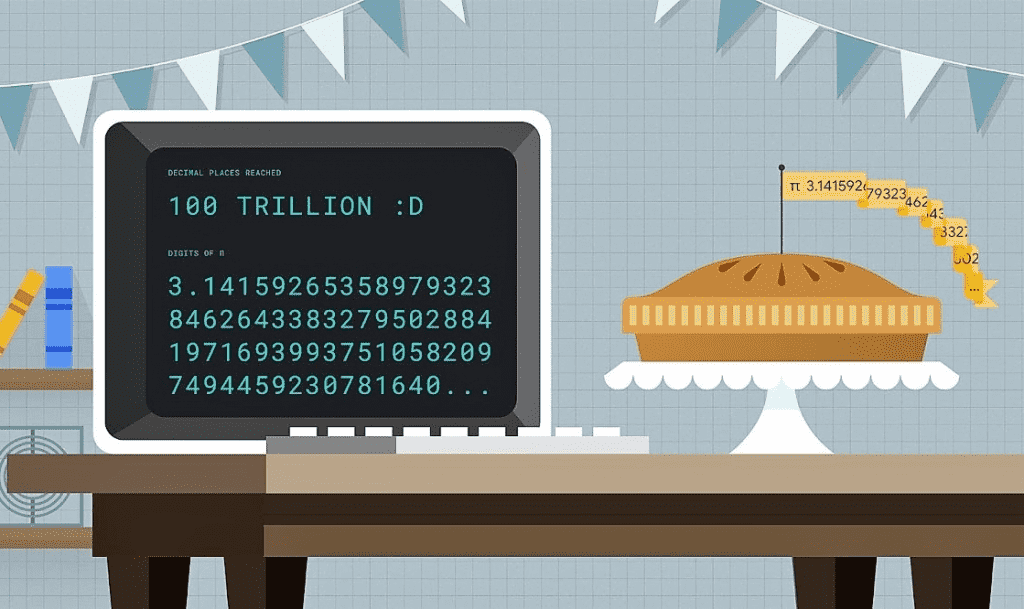Mathematicians and physicists have been working on computing the digits of pi for decades and decades — a quest that could continue indefinitely. But now, thanks to a Google project, we know the first 100 trillion digits of pi.
Three years after setting the world record for the most precise calculation of pi, Google has achieved it once more. We now know that pi corresponds to an astonishing precision of 100 trillion digits.

“This achievement is a testament to how much faster Google Cloud infrastructure gets, year in, year out,” read the press release from Google Cloud.
“The underlying technology that made this possible is Compute Engine, Google Cloud’s secure and customizable compute service, and its several recent additions and improvements: the Compute Engine N2 machine family, 100 Gbps egress bandwidth, Google Virtual NIC, and balanced Persistent Disks.”
For ages, mathematicians have been calculating a circle’s circumference to diameter ratio. Of course, it’s critical for scientists and engineers to have a high level of precision when calculating the value of an irrational number. Still, beyond that, it’s all about demonstrating how well an algorithm or a computer network can handle more realistic situations.
That drove Google and its brilliant team of experts to perform the computation in 2019 to a precision of 31.4 trillion digits (pi times 10 trillion).
Since 2019, computer science and engineering have been moving forward at an accelerating pace. The Google Cloud record was broken less than a year later, and in 2021, that record was broken in turn with a precision of 62.8 trillion digits, or pi times 20 trillion.

Thanks to improvements in Google Cloud’s Compute Engine and increased throughput, Google could calculate 100 trillion digits in 157 days faster than the 31.4 trillion-digit computation that took 121 days in 2019.
A pi-calculating algorithm called y-cruncher was used to process around 82,000 gigabytes of data. That’s more than four times as much data as was handled in 2019. For the record, Google claims that 82,000 terabytes of data are the equivalent of 2,598 years of HD movies.

Emma Haruka Iwao, a senior developer advocate for the Google Cloud Platform, believes another record will be set very soon.
“Computers continue to get better,” she said. “So does the Google Cloud infrastructure. We have some limits. Y-cruncher has certain limits, and we are well below those limits. There are many people out there who want to target more digits of pi, including me.”
“I’m really looking forward to more advancements and shifts in computer science and engineering, as well as in algorithms and mathematics,” Iwao said.
These developments can be applied to everyday computing jobs and pi problems.
“You might not calculate pi to a trillion digits, but you have some other problems and applications you want to run on the cloud or computers,” Iwao said. “It could be some scientific research; it could be multimedia, transcoding, 3-D rendering, gaming, anything. Communicating new technologies, new hardware and architectures to developers and practitioners are one of my focus areas.”
“I’m actually looking forward to hearing from people who look at the website and come up with new ideas,” Iwao said. “We publish all the numbers and see if there’s anything they can do with those numbers.”


